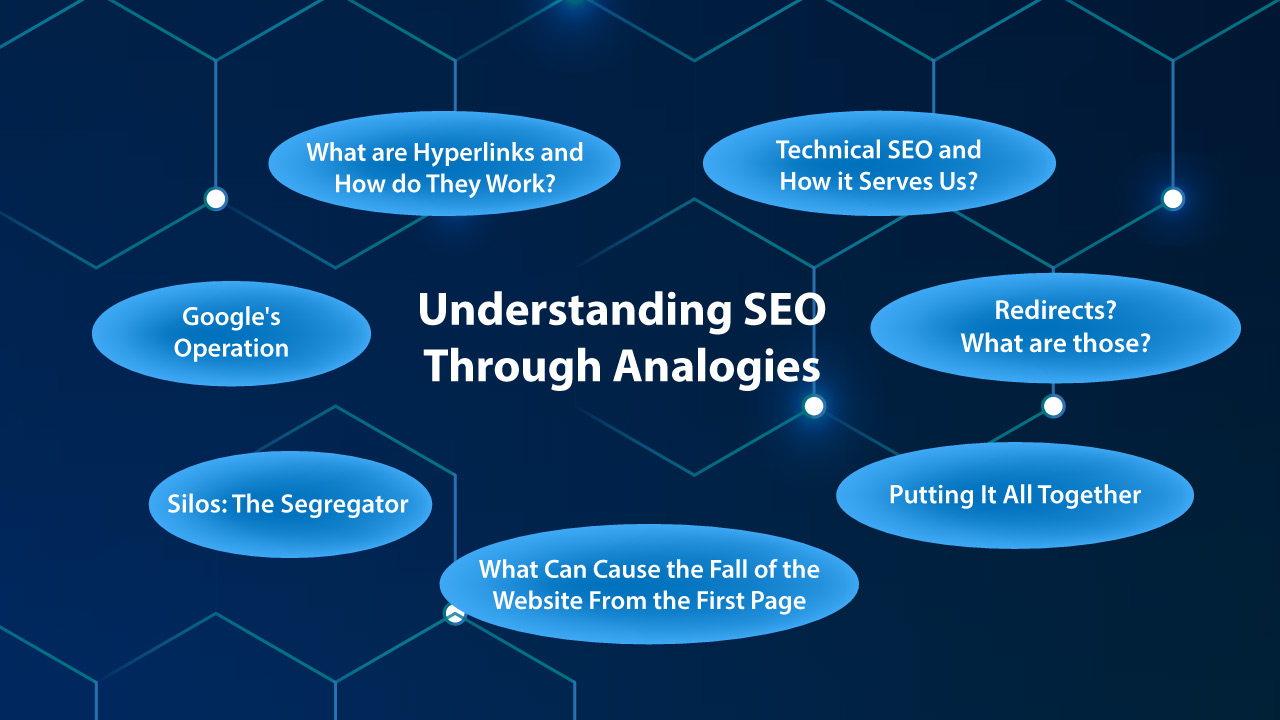There’s no denying that SEO is a confusing topic.
We in the search industry spend our days fighting an algorithm that is far too complicated for anyone to comprehend. An analogy may help put things into perspective, whether you’re an SEO attempting to explain how our giant algorithm functions or a website owner curious about how Google works.
Google’s Operation
Google is a simple creature that merely wants to provide the most exact response to a user’s question from a reliable source. I mean, what’s the worse that can happen? Let’s look at it through the lens of an analogy.
Suppose your boss has assigned you the task of researching England in the fifteenth century. They don’t give you any other information. So you decide to go to Amazon (this was a library in the original iteration of this example, and we’ve evolved) and browse books. You eventually narrow it down to two options: the first is a 30-page brochure prepared by a high school history teacher; the second is a 30-page pamphlet prepared by a high school history teacher. In the 15th century, the British Museum published a four-inch-thick encyclopedia of England.
Which would you choose if you didn’t know what your boss’s requirements were? You’d most likely choose a book that would likely address any questions your boss would have. Do they want to study rulers, battles, and the lives of ordinary people? Without knowing details, the best bet is to use the resource that contains the most information regarding the issue. You can rest assured that you may rest assured that this is how all of your queries will be answered. This will almost always be a huge, comprehensive resource from a reputable source.
The takeaway from the SEO analogy: If we want to show Google that we have a lot of knowledge and are a reliable source, we need to exhibit it and be the “huge book.”
What are Hyperlinks and How do They Work?
Let’s go to the local chamber of business to learn more about the importance of linkages.
Two brokers are members of the group. Broker 1 is a long-time member who thinks himself to be a “great broker” who doesn’t have to establish anything else. However, their title of “top broker” is mostly fictitious, as if you approach the chamber for a referral, you’ll be referred to broker 2.
Broker 2 just wants to help; they’ll take you out for coffee and talk about the market. They don’t expect anything from you, but they will provide you with references when they come across them. Broker 2 makes you feel unique, and you tell all of your friends about them.
The takeaway from the SEO analogy: Those web suggestions are links. We need to be more like broker number 2. We need to be sincere in our efforts to improve people’s lives through our tools, content, and corporate culture. We need to reach out to our customers and social media following and figure out how to make it about them.

Technical SEO and How it Serves Us?
How Does Technical SEO Help Us?
The following comparison can be applied to a variety of scenarios, but let’s start with technical SEO.
Consider the case below: You construct a lovely home on the crest of a hill, but you don’t construct it on a road, all of the entry doors are closed, but it’s always snowy outside. Visitors will never see your gorgeous home. Visitors’ tires spin due to ice, gravel, and potholes. Those that make it up the hill may approach your gorgeous home, thinking they’ll be able to be at the front door, only to be stranded in a corridor with nowhere to go.
The conclusion from the SEO analogy: Whenever your website isn’t technically sound, you put Google in this situation. Bots and users find it difficult to access and browse the site because you make it tough for them to do so. Technical SEO is necessary because Google would not be able to see the gorgeous site you’ve created without it.
Redirects? What are those?
Redirects appear to be a significant problem. What a mess of ambiguous redirects there may be.
Let’s go back to our nice, spacious home. The first thing we need to do after we move there is to tell the postal service so that our correspondence may be routed to our new address.
The post office, however, maintains both addresses on file for you because you sought a temporary detour. It isn’t a major issue, but it is sloppy. It may be easier to notify the post office that you have officially relocated. Let’s say you have info out there that tells people where you reside, but you haven’t updated it in a long time. As a result, rather than giving folks your current address, you keep giving them your old one and expect them to be rerouted.
The very first concern is that a 302 temporary redirect rather than a 301 permanent type is being used. Yes, Google asserts that it can currently manage this but still deliver PageRank correctly. And why are you being so careless in the first place? It’s not like one is more difficult than the other.
In the second case, every link on your site that points to a redirected URL is equivalent to giving out your old address. It’s difficult to break anything, but it does cause cleaning issues. Bad redirect housekeeping leads to a lot of broken links and long redirect chains, and you’ll kick yourself for not maintaining your links when you find yourself with them. Half a million redirects had no idea where they originated from 15 years later.
Silos: The segregator
Even veteran SEOs get this one incorrect because it is such an abstract idea. I won’t be able to adequately illustrate how to silo a website in this writing. In fact, a 10,000-word article has been written about siloing. However, it can be described what a silo is using an analogy. You go in loops until you have only half of what you want.
The kings of compartmentalization are supermarkets. Everything is organized around a central theme. If they believe products A and B should be purchased together, they position them next to each other. Anyone, anywhere in the world, can figure out how to shop in a supermarket. They can search by subject and wander about the store looking for items.
The implication from the SEO comparison is that your site is like a vast open store with a mess of jumbled themes if it doesn’t have silos. You aren’t obtaining more out of your sales, and you aren’t making it simple for users to find what they want. More significantly, you’re diluting the relevance of your search results.
What Can Cause the Fall of the Website From the First Page
There are other elements to consider if you want to figure out why your site is no more on the first page of search results. The cause, on the other hand, can be summarised by comparing Google to a department shop.
A department shop has a lot of unrelated merchandise. A buyer is assigned to each product category, and their job is to select the best goods for their department’s clients. However, just because a client decides your product does not guarantee that it will always be available. You’ll be gone in a flash if your product doesn’t sell, when there are too many refunds, or if something bigger and better comes along.
The lesson to be learned from the SEO analogy is that Google is a department store, and the SERPs are storefronts. You must not only show that you are deserving of someone being positioned on that shelf, but you must also fight for your right to stay there, because the store may replace you at any time with a better product.
Putting It All Together
Through analogies, clients may easily relate to SEO metaphors. It can analyze all of the SEO data it receives on a regular basis in a variety of ways. For those of you who seek precision and detail, these contrasts are not how Google truly works. These broad strokes, on the other hand, can make you realize SEO in a way that you or your clients will understand.
Analogies also aid in conveying SEO concepts to clients in a clear and understandable manner. As a result, clients are better able to comprehend why they are doing what they are doing, which improves execution.
Do you use analogies and metaphors to teach your clients about SEO?
If you answered yes, we’d appreciate hearing on the topic, as well as how you handle the vast amount of data that an SEO day comprises, in the comments.

